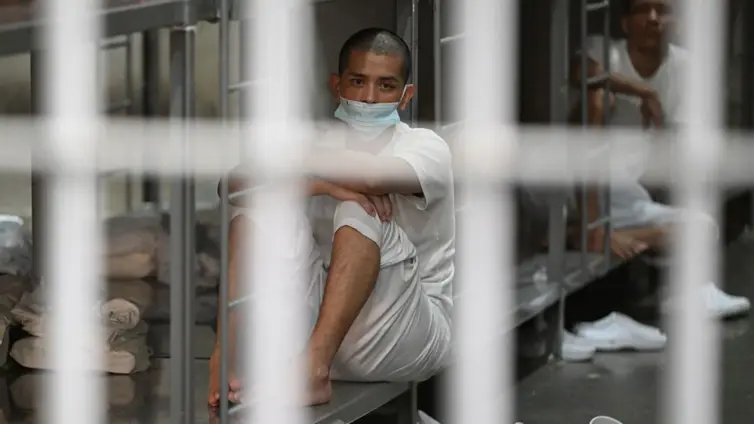A recent report from Deloitte West Africa offers a detailed look into Ghana’s economic future, particularly regarding inflation. According to their April 2025 West Africa Inflation Update, Ghana is projected to experience a continued decrease in consumer prices. This positive trend is attributed to several factors: stringent policy measures, increased fiscal discipline, a reduction in energy expenses, and a more stable cedi. The report suggests these elements working in concert will foster a more predictable economic environment. However, the report also tempers optimism with a warning about domestic inefficiencies that could impede this progress. The question now is whether Ghana can capitalize on these favorable conditions to solidify its economic standing, and what obstacles might stand in the way of achieving sustained, lower inflation in Ghana.
Deloitte’s analysis identifies key drivers behind Ghana’s declining inflation rate. The implementation of tighter fiscal policies and a commitment to fiscal discipline are considered central to this positive shift. These measures, designed to control government spending and reduce the national debt, are beginning to yield tangible results in the form of lower consumer prices. Complementing these efforts are the decreasing costs of energy and the stabilization of the cedi, Ghana’s currency. Deloitte’s April 2025 West Africa Inflation Update specifically notes that “policy tightening, fiscal discipline, lower energy costs and a stable cedi will support a sustained decline in consumer prices.”
Despite these encouraging signs, Deloitte cautions against the potential for domestic inefficiencies to undermine Ghana’s progress in curbing inflation. These inefficiencies, which could include issues such as supply chain bottlenecks, bureaucratic hurdles, or infrastructure limitations, pose a significant risk to the country’s economic stability. If not addressed effectively, these issues could negate the positive impact of policy tightening and other favorable economic factors. Identifying and mitigating these inefficiencies will be crucial for Ghana to maintain its current trajectory toward lower inflation. For example, what regulatory adaptations or infrastructure improvements would produce the best results?
Ghana’s most recent inflation figures reflect the progress made thus far. As of April 2025, the nation recorded its fourth consecutive monthly decline, reaching 21.2%. This figure suggests that the Bank of Ghana’s monetary policies are having the intended effect, potentially affording the central bank greater flexibility in its approach to managing the economy. However, projections for the year-end inflation rate vary. The International Monetary Fund (IMF) forecasts a rate of 17.5%, while the Ghanaian government is aiming for a more ambitious target of 12%. This difference in projections highlights the uncertainties that remain. Furthermore, the monthly inflation rate saw an increase to 0.8% in April 2025, up from 0.2% in March 2025, signaling a potential resurgence of inflationary pressures.
While overall inflation is trending downward, food inflation remains a persistent challenge in Ghana, significantly contributing to the cost of living for many citizens. Among the various food and beverage sub-classes, oils and fats have experienced the highest rates of inflation. The impact of this food inflation is particularly felt by lower-income households, straining their budgets and affecting their overall economic well-being. Addressing food inflation will be critical to ensuring that the benefits of lower overall inflation are shared equitably across the population.
Neighboring Nigeria is also experiencing a decline in inflation, albeit with its own set of unique circumstances. In April 2025, Nigeria’s inflation rate fell to 23.71% from 24.23% in March 2025. Core inflation recorded the most significant decline among sub-indices, dropping to 23.39%. This downward trend is supported by base effects and lower fuel prices. However, the pace of decline is potentially limited by Naira volatility and tariff hikes. While both Ghana and Nigeria are battling inflation, the specific factors at play and the challenges they face differ significantly, reflecting the diverse economic landscapes of West Africa.
Ghana is likely to continue its tightening monetary policy, as a result of the projected inflation decline. At its May 2025 meeting, the Monetary Policy Committee opted to keep the benchmark interest rate steady at 27.5%.
In conclusion, the Deloitte report paints a detailed picture of Ghana’s efforts to manage inflation. While progress has been made due to policy tightening, fiscal discipline, lower energy costs, and a stable cedi, significant risks remain, particularly from domestic inefficiencies and persistent food inflation. The differing projections from the IMF and the government underscore the uncertainties surrounding Ghana’s future inflation rate. Ultimately, Ghana’s ability to sustain its downward trajectory and achieve its inflation targets will depend on its success in addressing these challenges. Deloitte West Africa’s expert insights offer a valuable perspective on the nation’s economic policies and potential future.
Image Source: MYJOYONLINE





















